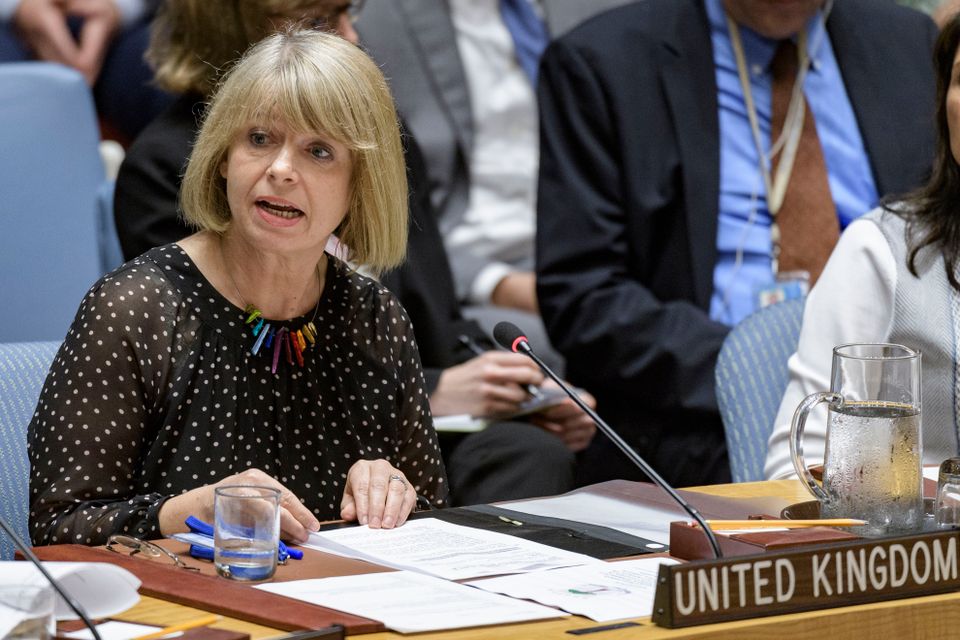International law is the very foundation of peace and security: Harriett Baldwin's UN Security Council statement
Foreign Office Minister Harriett Baldwin gave a statement at the United Nations Security Council debate on upholding international law.

Thank you very much Mr President, and your excellencies, ladies and gentlemen, on behalf of the United Kingdom, I also would like to thank the Polish Presidency for arranging todays important discussion and also add my thanks to our distinguished briefers this morning.
Mr President, there are few values more important to the United Kingdom than upholding international law. It is the very foundation of peace and security.
Today, conflicts and tragedies in Syria, Burma, Ukraine and elsewhere have shown us the importance of this commitment and the consequences of the failure to do so. In Syria, appalling violations of international humanitarian law and international human rights law by the regime and its backers continue. Russia’s veto in this Council, which stopped the work of the Joint Investigative Mechanism, means that there is currently no means available to properly investigate the use of chemical weapons against Syrian civilians. In Burma, the authorities have yet to begin a credible domestic investigation into the clear violations of human rights law in Rakhine State. Yet it is imperative that there is a route to hold the perpetrators of these crimes to account. And in Ukraine, the illegal annexation of Crimea 4 years ago represents an egregious assault on international law. The enduring conflict in eastern Ukraine continues to destroy lives.
Mr President, when armed conflicts break out, it is vital that all parties respect international humanitarian law and act in accordance with their obligations under it. As members of the international community, and members of the Security Council, we are all responsible for upholding international rules and norms. Today we must ask ourselves how we discharge that responsibility. The ‘Strengthening Respect for International Humanitarian Law’ initiative facilitated by the International Committee of the Red Cross and the Swiss government has the significant potential to aid this effort. It is a valuable first step and I encourage all states to engage with that process – but this alone is not sufficient.
Enabling the meaningful participation of women in decision-making is also key to upholding the rule of law. We know inclusive decision-making processes are critical in preventing the escalation of conflict and in maintaining and supporting peace in post-conflict societies. I call on states to act upon the commitments agreed in Security Council resolutions on Women, Peace and Security and recognise these to be an integral part of our effort to maintain peace and security.
Mr President, there will, sadly, be times when violations of international humanitarian law or international human rights law do occur. There must be no impunity in such instances. It is, of course, states themselves that have the primary responsibility to ensure that perpetrators are brought to justice. But we, as the international community, also have a role in helping states meet their responsibilities.
A year ago, this Council voted unanimously to adopt Resolution 2379 (2017) setting up an investigative team to assist efforts to hold Daesh accountable for crimes committed in Iraq. That team will collect, preserve and analyse evidence of Daesh’s heinous crimes and will work closely with the Government of Iraq and organisations already collecting such evidence. We hope that all states will support this important mechanism by contributing to the UN Trust Fund.
Mr President, the UK has strongly supported resolutions at the Human Rights Council aimed at increasing accountability. We welcome the efforts of the Secretary General and UN Secretariat to mainstream the promotion and protection of human rights in all United Nations activities. The UN’s human rights tools such as monitoring, reporting and analysis, can provide key early warning systems, and help to identify and address the root causes of conflict, as a means of prompting an effective and early United Nations response.
The International Criminal Court also has a key role to play restoring peace and security. It ensures accountability, acts as a deterrent, supports victims, and helps to establish an historical narrative of accountability. However, for it to succeed, the Court requires the full cooperation of states. Its inability to act directly against those it seeks to arrest, makes it entirely reliant on states to execute the arrest warrants it issues, but for too long and too frequently those indicted by the Court have been able to travel freely, without fear of arrest and prosecution. We therefore urge all states to honour UNSCRs 1970 and 1593 by cooperating fully with the Court and its Prosecutor.
The ad hoc international tribunals set up by the Security Council were crucial in bringing to justice those most responsible for the terrible crimes committed in Rwanda and the Balkans during the 1990s. We are so grateful to President Meron and his colleagues for taking forward this important work in the Residual Mechanism for International Criminal Tribunals. We hope that states will continue to ensure that the Mechanism has sufficient resources to fulfil its mandate. We note also the important role played, over many years, by the International Court of Justice in ensuring the maintenance of international peace and security.
In summary, the UK believes we must continue to work together to deliver accountability, justice, and reaffirm our commitment to the core tenets of international law.
Thank you.